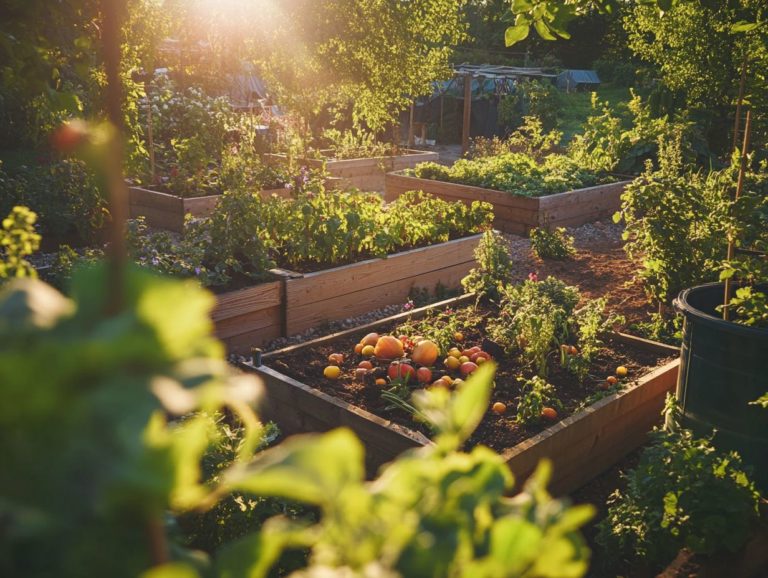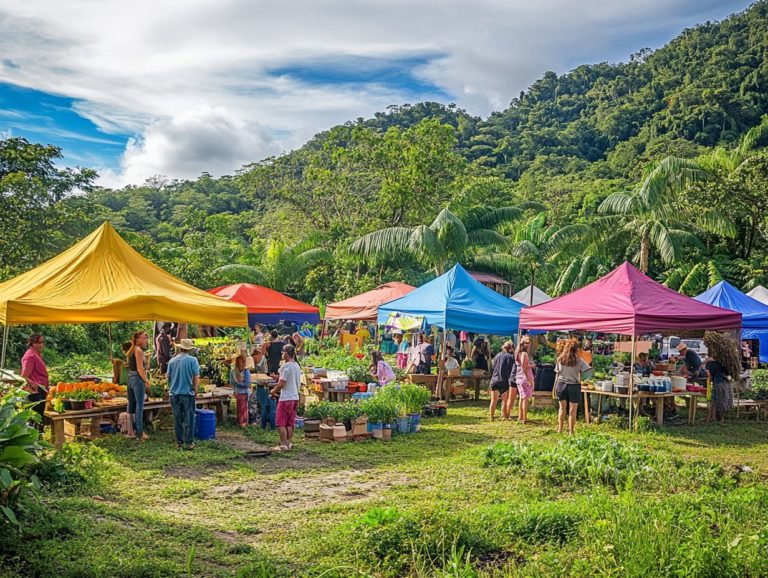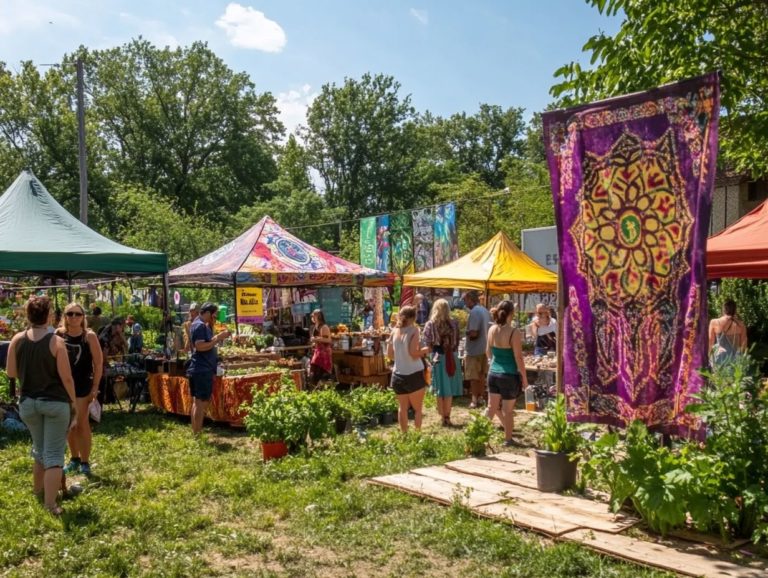22. 10 Blogs You Should Follow for Permaculture Insights
If you’re eager to delve into permaculture and expand your understanding, you ll find an abundance of resources at your fingertips online.
This article presents ten insightful blogs that deliver valuable information, practical tips, and inspiring narratives about permaculture.
From foundational principles to the environmental advantages and real-life success stories, these platforms offer a well-rounded perspective on this sustainable practice.
Whether you re a seasoned practitioner or just beginning your journey, these blogs will enrich your knowledge and motivate you to weave permaculture into your daily life.
Contents
- Key Takeaways:
- 1. Permaculture Research Institute
- 2. Permaculture Magazine
- 3. The Permaculture Life
- 4. The Permaculture Research Institute of Australia
- 5. Deep Green Permaculture
- 6. The Permaculture Podcast
- 7. Permaculture Principles
- 8. The Permaculture Student
- 9. Permaculture Apprentice
- 10. Permaculture News
- What Is Permaculture and Why Is It Important?
- Frequently Asked Questions
- 1. What is permaculture and why is it important?
- 2. How can following permaculture blogs help me in my daily life?
- 3. Which blogs should I follow for permaculture insights and sustainable living?
- 4. Are these blogs suitable for beginners in permaculture and permaculture education?
- 5. Can I trust the information provided in these blogs about permaculture techniques?
- 6. Can I interact with other permaculture enthusiasts and join the permaculture community through these blogs?
Key Takeaways:
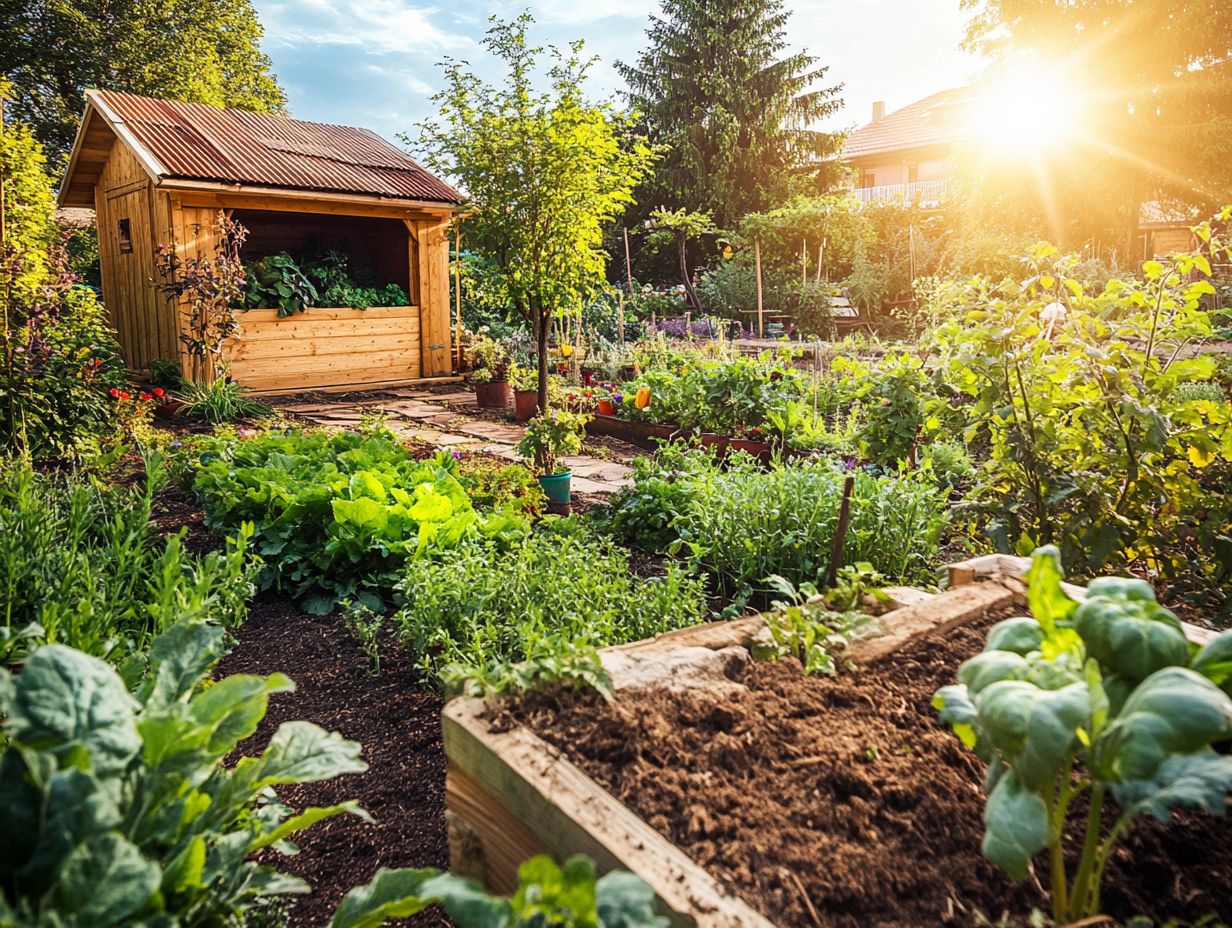
- Learn about the key principles of permaculture from top experts at Permaculture Research Institute and Permaculture Principles.
- Find inspiration and practical advice on implementing permaculture in your daily life from The Permaculture Life and Permaculture Apprentice.
- Stay informed on the latest news and successful projects in the permaculture community by following blogs like Permaculture Magazine and Permaculture News.
1. Permaculture Research Institute
The Permaculture Research Institute, founded by William Horvath, stands as a vital hub for advancing sustainable living through innovative educational resources and community projects.
Here, you can access knowledge that enables you to adopt eco-friendly practices and play a meaningful role in global environmental stewardship.
By committing to permaculture education, the Institute offers a variety of workshops and training programs.
They also collaborate with local permaculturists to launch impactful community initiatives. These projects serve as essential examples of how permaculture principles can be applied in the real world, encouraging you to engage in a hands-on learning experience.
Connecting diverse groups of people, the Institute underscores the importance of working together in nurturing sustainable ecosystems.
It s all about working towards a vision where communities thrive in harmony with nature. This spirit of collaboration not only strengthens relationships among stakeholders but also reinforces the notion that a united approach is crucial for achieving long-term ecological balance.
2. Permaculture Magazine
Permaculture Magazine is your go-to resource if you re keen on sustainable living. It offers you practical advice and insights into permaculture principles that cultivate ecological mindfulness and enhance community engagement.
As you turn its pages, you ll discover a wealth of content, including in-depth articles on innovative gardening techniques that enrich soil health and promote biodiversity.
The magazine highlights inspiring community projects, showcasing how collective efforts can transform local environments and strengthen connections among neighbors.
You ll also find interviews with leading permaculture experts, who share valuable perspectives on sustainable practices, enabling you with their experiences and knowledge.
This publication is a game-changer for raising awareness and inspiring eco-friendly practices!
3. The Permaculture Life
The Permaculture Life invites you to embrace a way of looking at the big picture regarding ecological design and eco-friendly living, encouraging your active engagement with the permaculture community through shared experiences and resources.
By adopting principles such as diversity, resilience, and sustainability, you may uncover transformative avenues for enhancing your daily life.
For example, you might find that cultivating a small vegetable garden not only yields fresh produce but also deepens your connection to the earth.
Starting small could be your gateway perhaps by creating a compost bin or integrating native plants into your landscape. This not only minimizes waste but also nurtures local ecosystems.
Building connections with your neighbors through community workshops can foster a robust support system, where skills, seeds, and stories are exchanged, ultimately cultivating a vibrant and resilient community.
4. The Permaculture Research Institute of Australia
The Permaculture Research Institute of Australia, co-founded by David Holmgren, leads the way in sustainable gardening and farm design. It promotes practices that embody permaculture principles.
Discover a variety of courses, workshops, and resources tailored to help you and your community implement permaculture strategies confidently. From introductory programs to advanced training, these initiatives are vital for aspiring permaculture practitioners.
By deepening your understanding of sustainable practices, the institute advances permaculture across Australia. It empowers local communities to reclaim food sovereignty and enhance biodiversity.
5. Deep Green Permaculture
Deep Green Permaculture is your destination for organic gardening, focusing on no-dig gardening techniques. This approach supports soil health and sustainable ecosystems.
No-dig gardening minimizes soil disturbance, allowing beneficial organisms to thrive. This not only conserves moisture but also supports natural nutrient cycling, resulting in healthier plants and bigger yields.
If you’re eager to learn, a wealth of resources is available. Find educational workshops, online courses, and community support groups to guide you in implementing no-dig methods.
6. The Permaculture Podcast
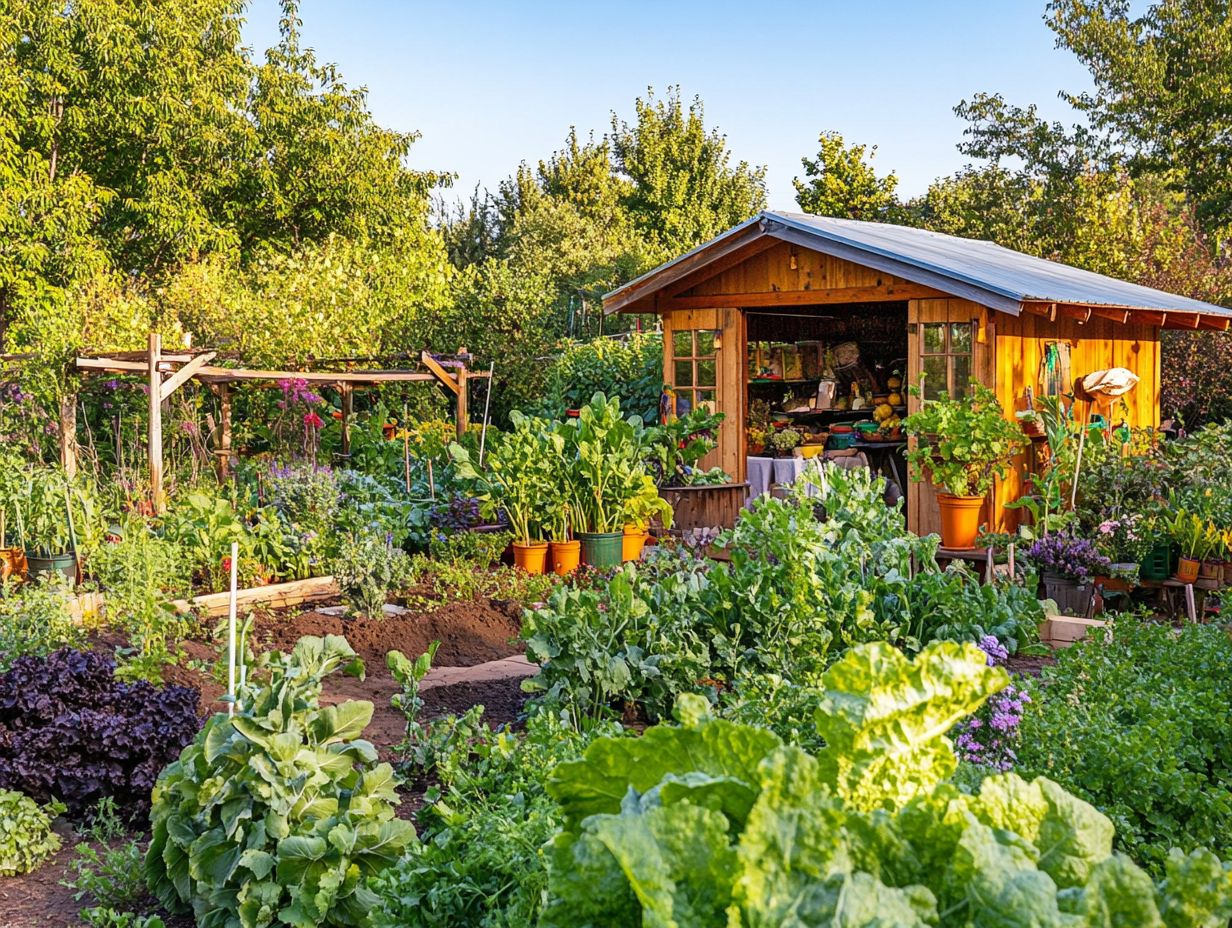
The Permaculture Podcast is a fantastic platform for exploring permaculture techniques. It offers educational resources and fosters community engagement in sustainable practices.
Each episode covers various topics and features interviews with permaculture experts like Graham Burnett and Morag Gamble. This podcast educates and inspires action in the permaculture movement.
By promoting ecological mindfulness, it encourages you to rethink your relationship with nature. Get inspired to embrace regenerative agricultural practices and cultivate thriving ecosystems.
7. Permaculture Principles
Permaculture principles form the foundation of sustainable practices. They guide you in creating ecological designs that promote resilience and harmony with nature.
These principles encourage thoughtful design and a reciprocal relationship with your environment. For example, using diverse cropping systems can improve soil health and reduce pest issues.
In community gardens, integrating layered planting methods maximizes space and helps reduce greenhouse gas emissions. Using renewable energy sources like solar power shows your commitment to lowering carbon footprints.
Embracing these principles enriches your lifestyle and fosters environmental stewardship. This inspires communities to work together for sustainable futures.
8. The Permaculture Student
The Permaculture Student provides an exceptional opportunity for you to engage in comprehensive gardening education and permaculture courses, designed to give you the skills you need for thriving in permaculture practices and community projects.
These courses explore sustainable agriculture, ecosystem design, and environmental stewardship. They lay a solid foundation for your journey as an aspiring permaculturist. Many students have had incredible experiences, often sharing how they ve adapted course concepts to ignite innovative local initiatives.
For example, numerous participants have turned classroom theories into reality by establishing community gardens that emphasize biodiversity and local food production.
Others have successfully implemented water conservation systems or developed educational workshops in their neighborhoods. This cultivates a spirit of collaboration and resilience. As you thrive in this environment, you not only enhance your personal growth but also contribute significantly to the well-being of your community. This showcases the profound impact of a thorough permaculture education.
9. Permaculture Apprentice
Permaculture Apprentice offers you immersive experiences and practical insights that seamlessly connect theoretical permaculture education with real-world applications in community engagement initiatives.
Through a diverse array of workshops and internships, you ll dive deep into sustainable practices that enhance your understanding of permaculture techniques. You will also forge connections with like-minded individuals. These hands-on experiences allow you to engage directly with the land, witnessing the transformative power of permaculture principles in action.
By collaborating with experienced mentors and fellow apprentices, you ll strengthen community ties and cultivate a supportive network. This network extends far beyond the classroom, ultimately enabling you to implement sustainable practices in your own community.
10. Permaculture News
Permaculture News serves as an essential resource for you. It offers the latest updates on farms and ecological projects while providing a platform for sharing valuable permaculture resources and inspiring action within your community.
This publication not only keeps you informed about groundbreaking initiatives but also highlights success stories that can ignite your passion for exploring sustainable practices. It showcases a diverse array of projects from around the globe, emphasizing how permaculture principles can fit various environments and cultures.
Staying updated through this comprehensive coverage enhances your awareness. It also encourages your active involvement in the community.
As you engage with these advancements, you ll have the opportunity to form connections that strengthen collective efforts toward ecological stewardship. This makes shared knowledge a vital component of nurturing a thriving, informed community.
What Is Permaculture and Why Is It Important?
Permaculture presents a groundbreaking approach to sustainable living. It weaves together ecological design principles to create harmonious, self-sufficient ecosystems. This approach addresses the pressing need for environmental awareness and stewardship in our modern world.
By emphasizing the interconnections among natural systems, permaculture invites you to work with nature rather than against it. It promotes practices that enhance biodiversity, conserve resources, and foster community well-being.
Take, for example, the urban gardens in Detroit or the regenerative farms in Australia. These projects showcase how permaculture principles can breathe new life into local ecosystems while supplying fresh produce to communities.
This holistic framework nurtures not just the soil, but also social connections. It encourages collaboration and resilience amidst environmental challenges.
Dive into permaculture now and see how it can transform your community!
What Are the Key Principles of Permaculture?
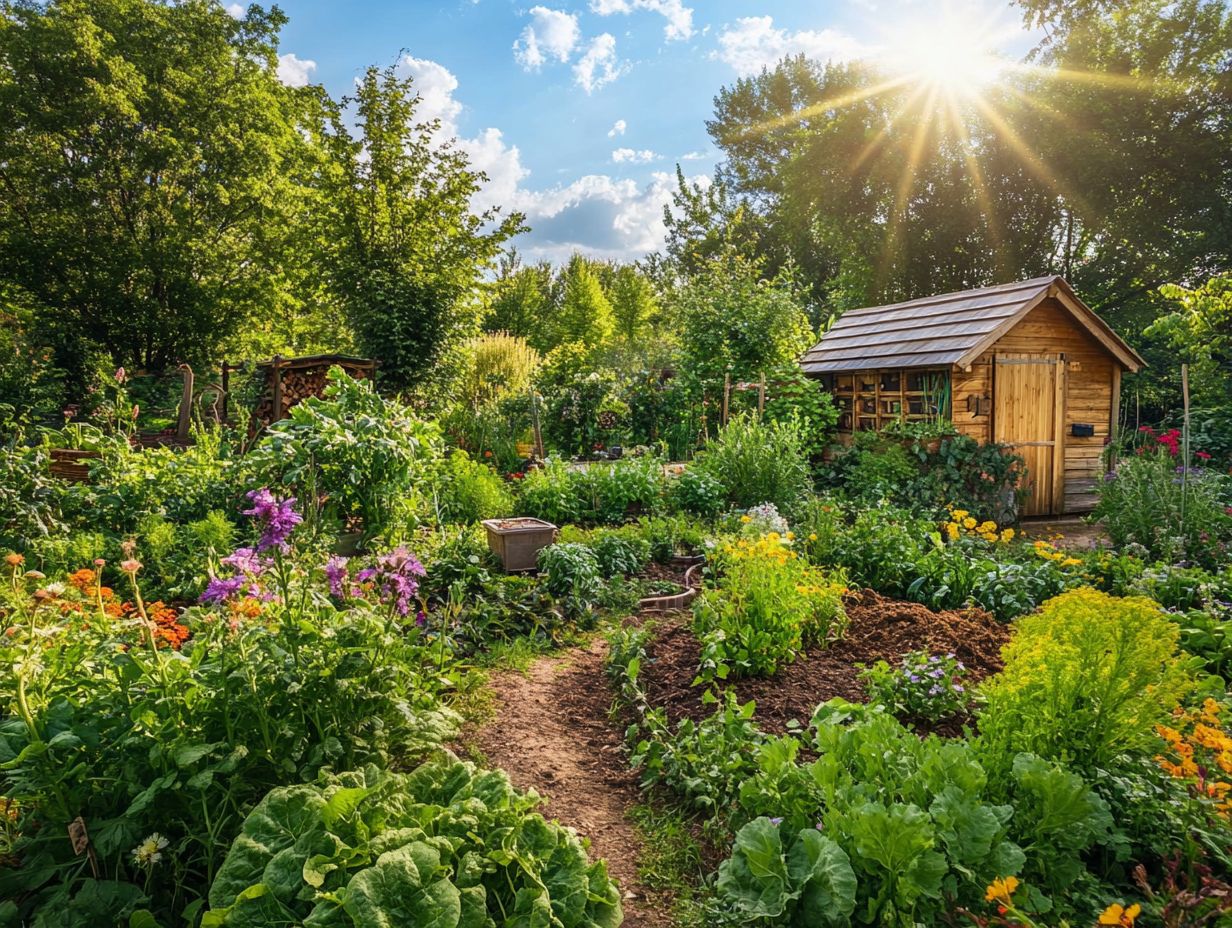
The key principles of permaculture serve as your roadmap for creating sustainable systems that prioritize ecological balance, resource efficiency, and community resilience.
By integrating these principles, you can develop amazing practices that boost soil health and make a difference! For example, think about companion planting, which naturally increases crop productivity and pest control like when basil thrives alongside tomatoes in a well-planned garden.
Embracing the principle of ‘stacking functions’ allows you to maximize the utility of a single space. Consider a rain garden that collects water while providing habitat for local wildlife. These strategies show why permaculture matters, guiding you toward a more sustainable lifestyle and fostering community engagement.
How Can Permaculture Benefit the Environment?
Permaculture enriches the environment in countless ways, enhancing biodiversity and improving soil health. It fosters sustainable ecosystems through regenerative agricultural practices.
Mimicking the intricacies of natural ecosystems helps with carbon sequestration the process of capturing and storing carbon dioxide from the atmosphere and plays a vital role in water conservation. This holistic framework for land management cultivates strength to face climate change challenges.
By nurturing healthy soil and diverse plant life, permaculture enhances water retention and mitigates erosion, leading to a more stable environment. These comprehensive methods encourage you to cultivate greater ecological mindfulness and understand your role in fostering a healthier planet.
What Are Some Examples of Successful Permaculture Projects?
Successful permaculture projects worldwide demonstrate the myriad ways you can apply permaculture principles in community endeavors, showcasing innovative ideas that foster sustainability and resilience.
Imagine urban gardens transforming barren lots into vibrant green sanctuaries or rural farms revitalizing ecosystems while providing nourishing food. These initiatives showcase the power of communities coming together to pursue a shared ecological vision.
Take the Chicago Urban Agriculture Ordinance, which champions local urban farms that enhance food access and promote community engagement and education. Consider the inspiring ‘Permaculture for Beginners’ course in Kenya, which honors local knowledge and empowers women through agricultural education.
These projects provide inspiring insights that you can apply! They serve as a testament to how such examples can spark future initiatives aimed at cultivating sustainable practices finely tuned to local needs.
How Can One Incorporate Permaculture into Their Daily Life?
Incorporating permaculture into your daily life is entirely achievable with practical advice that champions eco-friendly lifestyles and effective gardening techniques, enabling you to cultivate sustainable and self-reliant living spaces.
Start with small, manageable projects, and you’ll find that transforming your backyard or even a balcony into a vibrant oasis that nurtures biodiversity is within reach. For instance, designing a food forest introduces layers of vegetation trees, shrubs, and ground cover creating a self-sustaining ecosystem that provides fresh produce throughout the year.
Embracing no-dig gardening eliminates soil disruption while enhancing soil health and conserving moisture. While these initial steps may seem minor, their cumulative effect can significantly reduce your carbon footprint, improve local wildlife habitats, and promote nutrient cycling, contributing to a more resilient planet.
Start your journey towards a sustainable lifestyle today!
What Are the Common Misconceptions About Permaculture?
Common misconceptions about permaculture arise from a lack of understanding, leading to confusion about its principles, practices, and potential benefits. This misunderstanding can obstruct the wider adoption of permaculture education.
When clarity is lacking, barriers can emerge for those interested in sustainable living, making it seem like a niche or impractical choice. Many people believe that permaculture is strictly about gardening or that it requires vast expanses of land. In reality, its principles are versatile and can be applied across various scales and settings, including urban environments.
At its core, permaculture is about designing systems that align with nature, promote ecological balance, and encourage methods that help nature recover and thrive. By cultivating a deeper awareness of these methods, you can play a vital role in building a more sustainable future. This makes permaculture a practical choice for a wide range of lifestyles and communities.
Frequently Asked Questions
1. What is permaculture and why is it important?
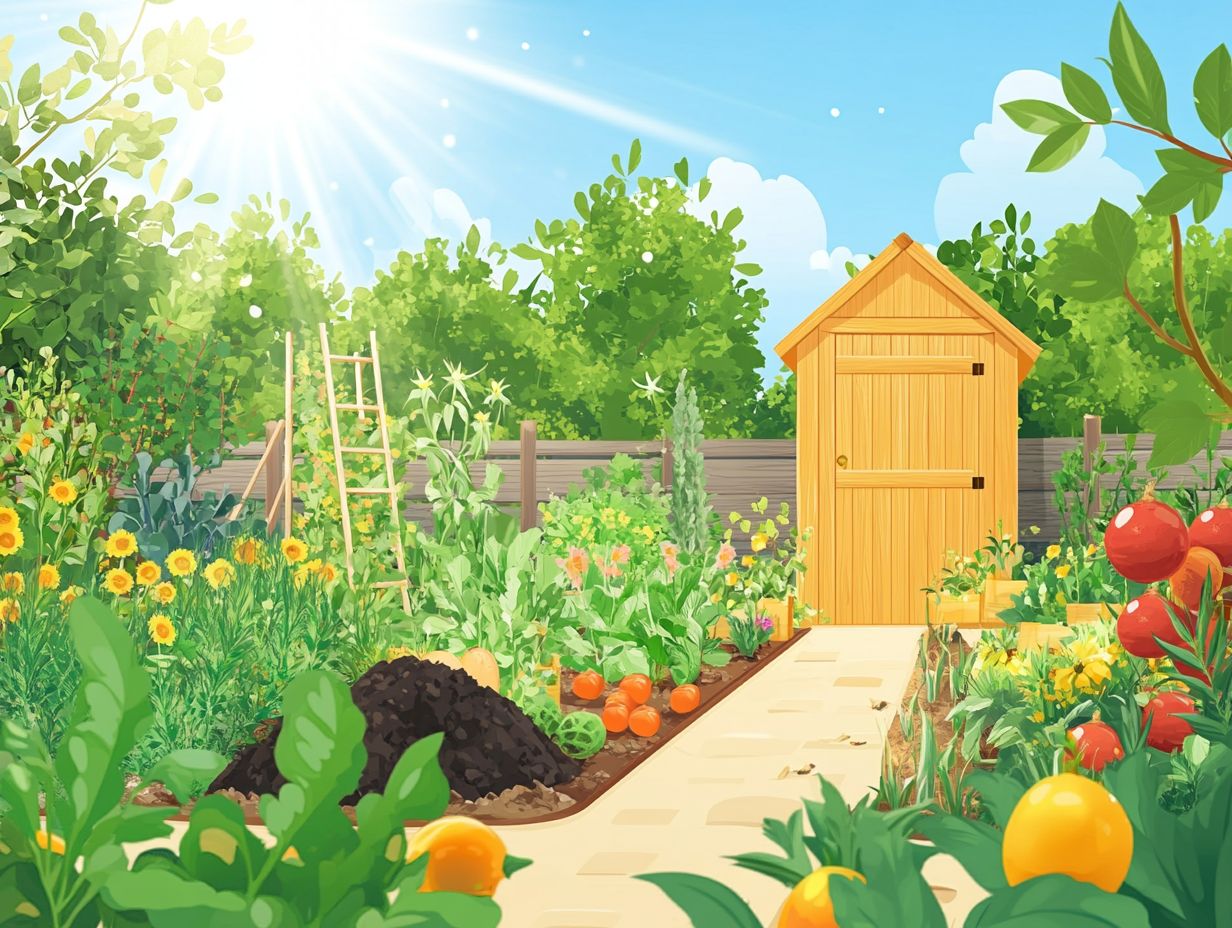
Permaculture is an approach to designing sustainable human habitats by mimicking natural ecosystems. It focuses on creating harmonious and regenerative systems that benefit both humans and the environment. It offers solutions for environmental, social, and economic issues while promoting self-sufficiency and resilience in communities.
2. How can following permaculture blogs help me in my daily life?
Permaculture blogs provide valuable insights, tips, and techniques for sustainable living and gardening. By following these blogs, you can learn how to grow your own food, reduce waste, and live a more sustainable lifestyle.
3. Which blogs should I follow for permaculture insights and sustainable living?
There are many great permaculture blogs, including the Permaculture Research Institute and The Permaculture Review. These blogs offer a wealth of information on permaculture principles, techniques, and real-life examples.
4. Are these blogs suitable for beginners in permaculture and permaculture education?
Yes, many of these blogs cater to beginners and offer introductory information on permaculture. They provide resources for further learning and networking opportunities with other permaculture enthusiasts.
5. Can I trust the information provided in these blogs about permaculture techniques?
Most of these blogs are run by experienced permaculturists and experts in the field. They provide references and sources for their information, making it reliable and trustworthy.
6. Can I interact with other permaculture enthusiasts and join the permaculture community through these blogs?
Yes, many of these blogs have active communities and forums where you can connect with other permaculture enthusiasts, ask questions, and share your experiences. Join the conversation to dive into the latest permaculture trends!
For further insights, subscribe to these blogs and share your own experiences in the permaculture community!

